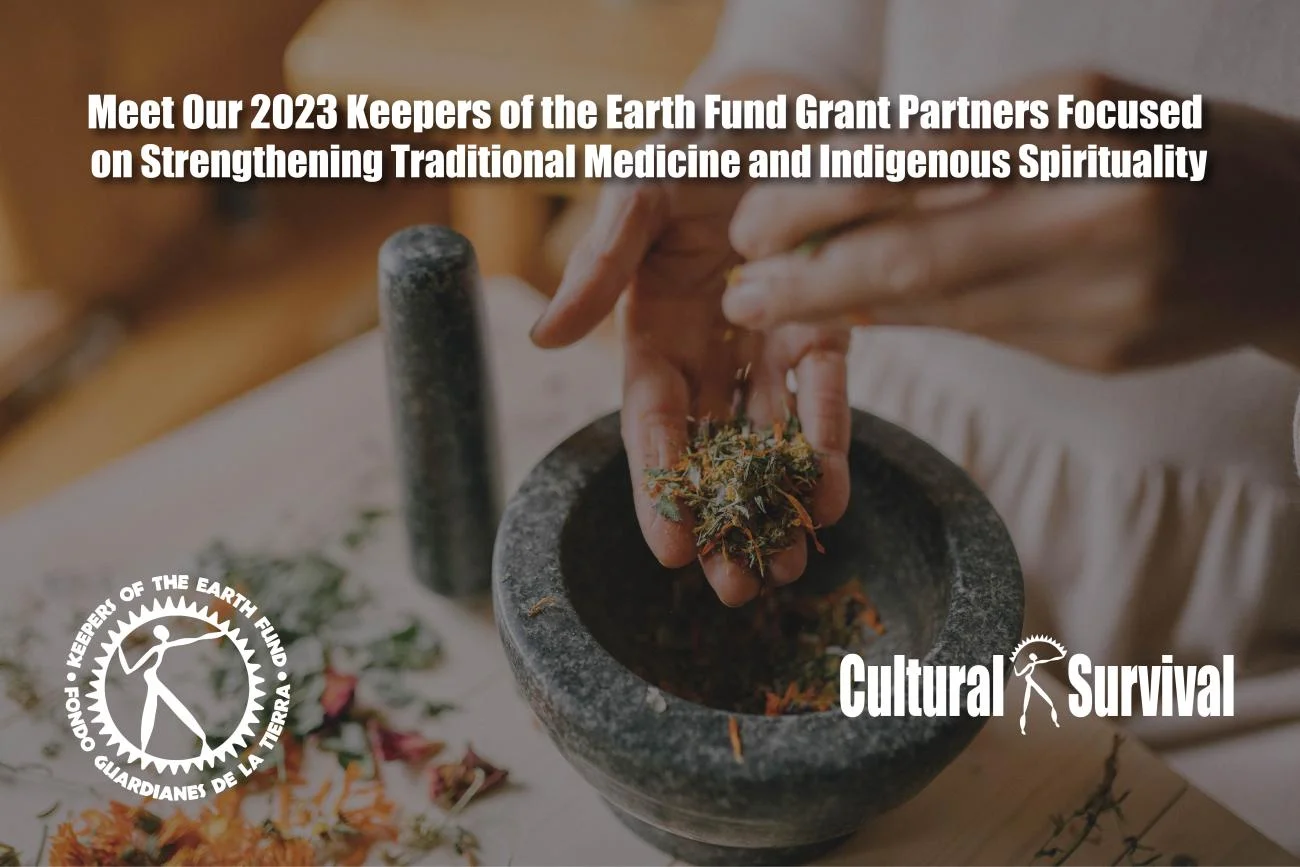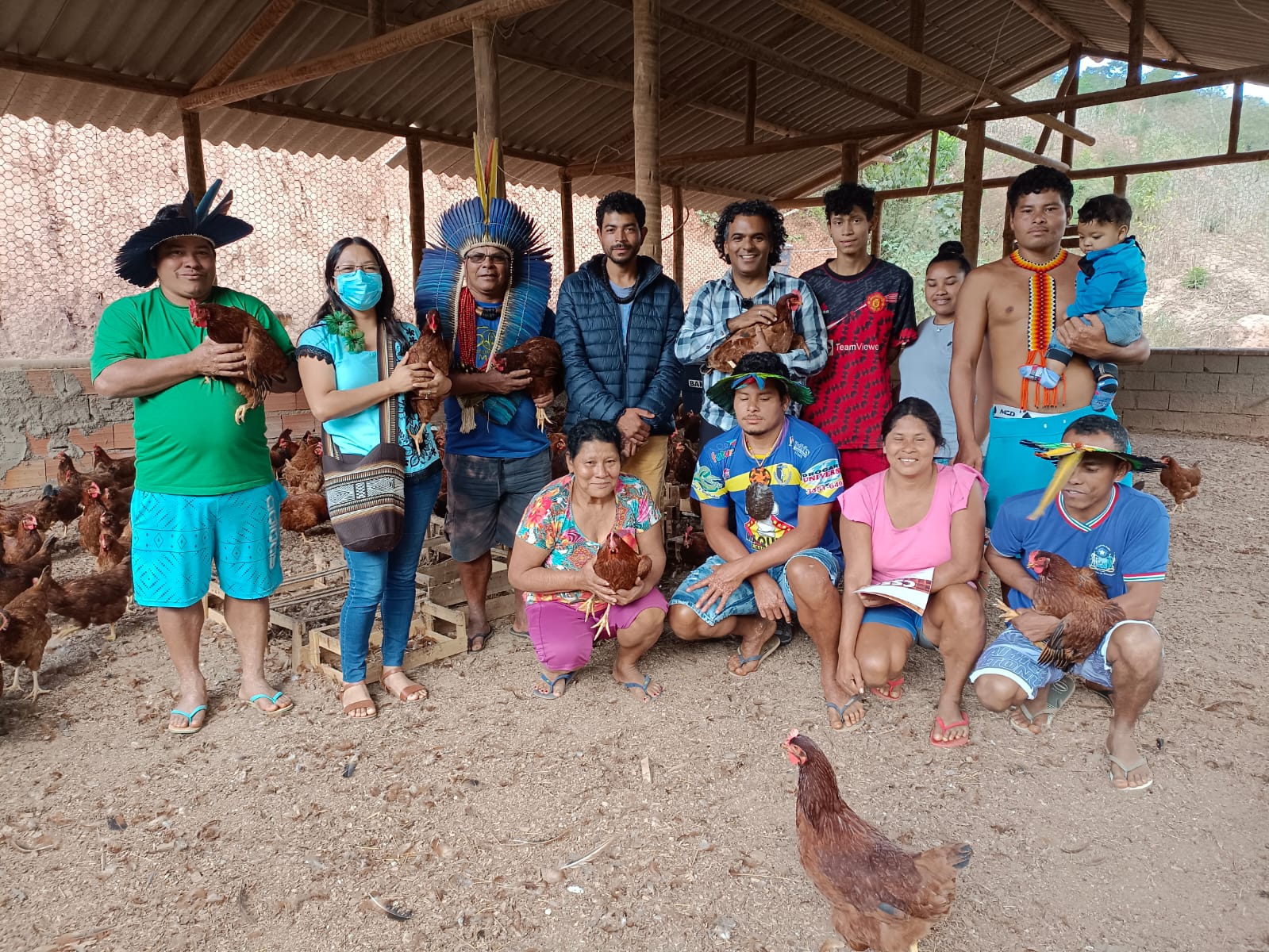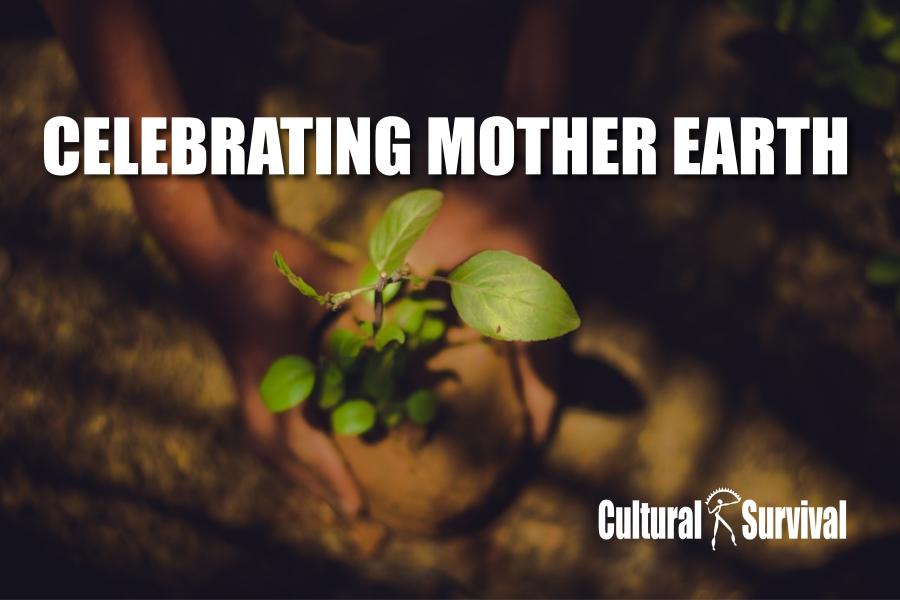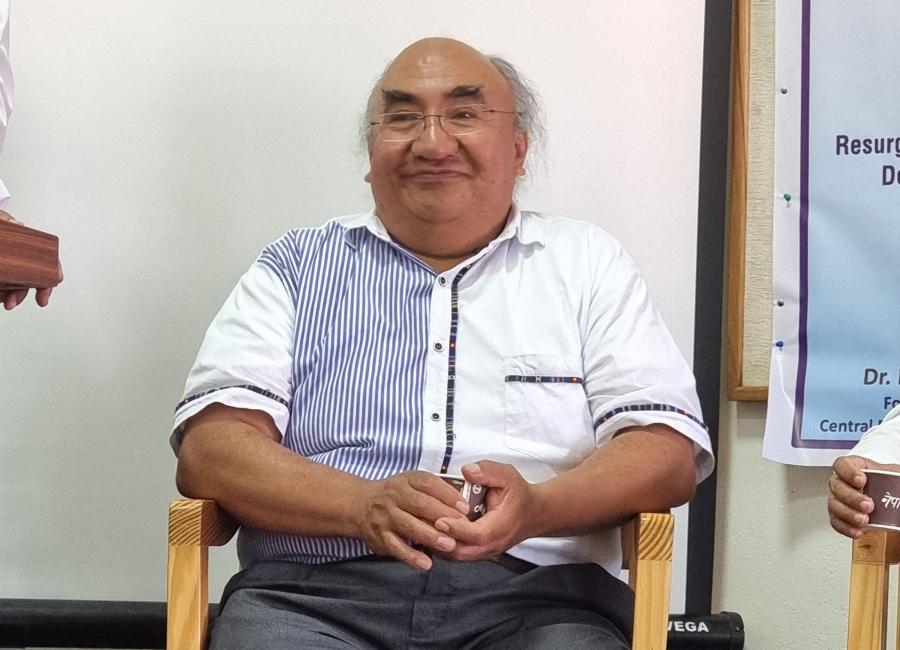
The Keepers of the Earth Fund (KOEF) is proud to announce that in 2023 we awarded over half a million dollars in small grants to support Indigenous projects on issues related to community empowerment for land defense and autonomy; the transmission of Indigenous knowledge; traditional medicine and Indigenous spirituality; food sovereignty and Indigenous economies; and the various forms of resistance to mining for the energy transition.
In total, 72 Indigenous projects and collectives were financed for a total amount of $543,605. The funds were sent directly to Indigenous communities, collectives, and grassroots organizations in 21 countries.
At Cultural Survival, we value cultivating long-term relationships with our partners. Therefore, we awarded 22 grants to organizations that had received grants in prior years, representing one-third of this year's total. Following our programmatic priority of supporting Indigenous women and youth, 16 organizations led by Indigenous women and 9 projects either led by or directly supporting Indigenous youth were financed.
The Keepers of the Earth Fund is an Indigenous-led fund at Cultural Survival designed to support Indigenous Peoples' advocacy and community development projects globally. Since 2017, we have supported 310 projects in 41 countries through small grants and wrap-around support totaling $1,603,307. Grants go directly to Indigenous communities, collectives, organizations, and traditional governments to support projects designed by them and in accordance with their Indigenous values. Predicated on the United Nations Declaration on the Rights of Indigenous Peoples, Cultural Survival uses a rights-based approach in our grantmaking strategies to support grassroots Indigenous solutions through the equitable distribution of resources to Indigenous communities.
Meet our grant partners focused on strengthening traditional medicine and Indigenous spirituality.
Amazonian Indigenous Roots Association (ARIAP) - (Shipibo, Konibo), Peru
The Amazonian Indigenous Roots Association is made up of different Indigenous Peoples in the Peruvian Amazon who are working on the development of a digital platform to document and disseminate spiritual and medicinal practices of the Shipibo-Konibo Peoples. The program was designed by Indigenous youth and is called "Musical Ikaros," in reference to the Shipibo ancestral medicine songs that are sung in healing rituals. They hope to revitalize the Shipibo language and strengthen ancestral Shipibo practices and knowledge, which are threatened as a result of westernization.
San Isidro, Metlatónoc - (Ñuu Savi), Mexico
The community of San Isidro is made up of Ñuu Savi families (“People of the Rain”), who continue to practice their spirituality in relation to water, planting, and harvesting milpa. With a grant from the Keepers of the Earth Fund, they are working for the conservation, revitalization, and strengthening of Ñuu Savi cultural identity through rituals for rain carried out in their sacred places. They plan to document this spiritual practice, which is part of their agricultural calendar, as a way of ensuring the transfer of knowledge to the next generations of Ñuu Savi.
Yucunani Community, Mixtepec - (Ñuu Savi), Mexico
Yucunani is a community in the Ñuu Savi, or Mixteca, region in Oaxaca. Colonial religious beliefs have degraded the customs of the Mixtec people, and Yucunani is one of the few communities in the area that continues to preserve the tradition of the rain house—sacred spaces where people go to pray for a good harvest. With the support of a Keepers of the Earth Fund grant, the community is working to improve access to this natural and sacred space so that they can continue to practice their Indigenous rituals and transmit this spiritual knowledge to younger generations.
Board of Trustees for the San Francisco Ixhuatán Preparatory School Through Cooperation - (Binnizá, Ikoots), Mexico
The Board of Trustees was founded in 1982 by a group of Binnizá professionals from San Francisco Ixhuatán together with Ikoots communities from San Francisco del Mar on the Isthmus of Tehuantepec. In this region, monoculture has resulted in deforestation and the loss of various native species. Among the consequences of this loss of biodiversity, Binnizá and Ikoots communities are no longer able to find the plants they need for their traditional medicines. To address this problem, the Board of Trustees, with the support of a Keepers of the Earth Fund grant, is building a community health house with a garden for medicinal plants where new traditional doctors will be trained. They also are seeking to protect the natural spaces that still exist and are essential to the medicinal knowledge of the community.
Serrinha Village - (Pankararu), Brazil
Serrinha Village is a traditional village located in Pankararu Indigenous land in northeastern Brazil that maintains its rituals as a form of resistance. During holy festivals, where food is mainly prepared outdoors, there is insufficient shade. This problem prompted the idea of building a community kitchen in their main patio, which will allow them to work in safer conditions while they maintain their strong cultural ties through traditional festivities.

Kãnã Mihay Pataxó Retirinho Village Association - (Pataxó), Brazil
The Kãnã Mihay Pataxó Retirinho Village Association, founded in 2019 in Minas Gerais, belongs to a village that lives in resistance by maintaining their culture and rituals that connect them to their ancestors. For these and other community events, they need a covered structure. This year, with the support of the Keepers of the Earth Fund, they are building a multipurpose cultural center. The space will also serve their community cultural tourism project, providing additional economic support to the village.
Vida Digna Collective Association - (K'iche', Tz'utujil, Kaqchikel, Mam, Ixil, Q'eqchi, Poqomchi), Guatemala
Vida Digna is an Indigenous organization in western Quetzaltenango made up of different Indigenous Peoples from the region. The region has a volcanic steam tuj (sauna), naturally formed with stones from the mountain, that is used by midwives, healers, and spiritual guides due to its health benefits. The Vida Digna Collective Association, together with the community and the support of a KOEF grant, is restoring and strengthening the structure of the tuj to support the practice of traditional medicine.
Women Defenders of the Natural Habitat - (Coya Omaguaca), Argentina
Women Defenders of the Natural Habitat was created in 2016 to find solutions to the environmental problems caused by extractive activities of mining companies. Based in the town of El Aguilar in the department of Humahuaca, Jujuy province, the women are working to recover the medicinal species damaged by mining activity. They have begun the reforestation of the Polylepis tree, which is highly valued for its multiple benefits, and are conducting an analysis of surface water and soil to identify the areas with high levels of contaminants.
Center for Indigenous Rights (CEDIAC) - (Tseltal), Mexico
The Center for Indigenous Rights was founded in 1992 to commemorate 500 years of Indigenous resistance in the Americas. Faced with rising rates of violence against women, the organization, with the support of a KOEF grant, is promoting the Harmony Planters through the Yip Co'tantic Women's Network Project, which is hosting talks, workshops, and healing circles for the care of Tseltal women and their territories.
Lakota LockUp Project - (Lakota, Nakota, Dakota), USA
Based in Rapid City, South Dakota, the Lakota LockUp Project uses a spiritual approach to address the loss of native languages and intergenerational knowledge among Native Peoples. The loss of spiritual connection has further negatively impacted Native communities’ mental health and well being, contributing to disproportionately high rates of suicide, violence, and incarceration. The Lakota LockUp Project hosts healing sessions with incarcerated inmates and their families, and with the support of a KOEF grant, they will also create cultural events where families can gather together more frequently and engage in cultural activities.



